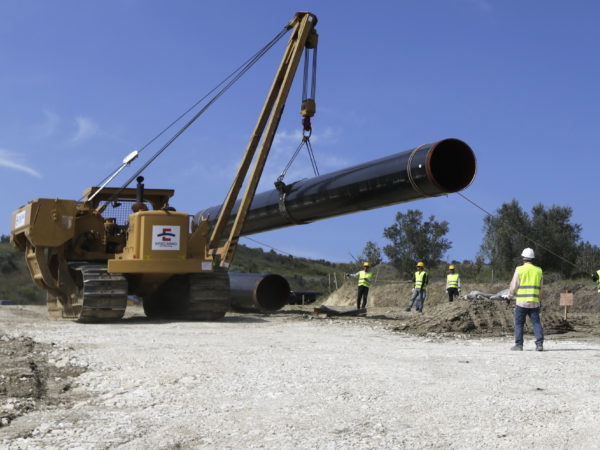Euractive: Southern Gas Corridor is a living example of multilateral cooperation in the EU’s East

The multi-billion euro Southern Gas Corridor should not be seen as a mere energy security project; it is a robust interconnectivity initiative which will bring closer other partners in Central Asia seeking access to the EU market, writes the Embassy of Azerbaijan to the EU.
This text was sent to EURACTIV by the Emabssy of Azerbaijan in Brussels following the publication of an opinion piece by CEE Bankwach.
Failing to provide any evidence on the alleged environmental hazards of this project and its disadvantages to the European community, the article by CEE Bankwatch tends to blend rumours with unfounded accusations with the sole aim of discrediting Azerbaijan at any opportunity.
It should be emphasised that the strategic role of Azerbaijan in enabling and contributing to the energy security of Europe has been widely recognised and hailed by the EU as a result of tangible efforts made by Azerbaijan, through building new interconnections and pipelines starting from the 1990s. For Europe Baku-Tbilisi-Ceyhan and Baku-Tbilisi-Erzurum heralded alternative volumes from alternative sources, the concept which was developed and put in place by deceased President Heydar Aliyev.
Currently Azerbaijan supplies 5% of the EU’s gas demand. A multibillion euro Southern Gas Corridor should not be seen as a mere energy security project; it is a robust interconnectivity initiative which will bring closer other partners in Central Asia seeking access to the EU market.
SGC is a living example of multilateral cooperation in the Eastern Partnership involving dynamic interaction among its stakeholders, particularly two EU member states, two candidate countries, one associate partner and Azerbaijan for the realisation of the project.
SGC is further delivering on Eastern Partnership goals, by strengthening state, economic and societal resilience through creating thousands of jobs in EU and other countries. The trans-Adriatic Pipeline, a major component of SGC, is one of the greatest direct foreign investment projects carried out in Greece. For Greece, it means an investment of over €1.5 billion and 8,000 jobs.
The trans-Adriatic Pipeline has developed an environmental, cultural and social heritage management system to support the implementation of project standards presented in Environmental and Social Impact Assessments approved by host country governments. In order to achieve protection and preservation of the natural environment, TAP and its contractors have completed extensive multi-disciplinary pre-construction studies involving environmental, social and cultural heritage.
Moreover, every olive tree in the Italian section is surveyed accurately and carefully removed to a temporary storage area in order to be replanted once the pipeline layoff is finished. TAP will also help provide a better energy supply mix for consumers in the Balkans and south-eastern Europe as well as achieve significant CO2 reductions through the substitution of obsolete coal-fired power plants.
The EU as well as project stakeholders are bearing full witness to the SGC’s benefits and therefore they are committed to creating an enabling environment in order to make it fully operational. The EBRD’s lending decision is a right step towards materialising the EU’s pragmatic approach to the project.














